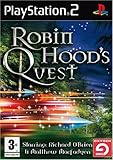Stylus Magazine P&P Review (Dec 2005)
Cast: Keira Knightley, Matthew MacFadyen, Donald Sutherland
A-
Positively crackling with a contagiously giddy vibrancy and irresistible wit, first time director Joe Wright's Pride and Prejudice—the umpteenth such adaptation, and second in just the last year if you include the Bollywood musical Bride and Prejudice—is an effusive affirmation against any objections to the perennial relevance of Austen's beloved classic of manners, marriage and money. Less a full-scale revision than a welcome airing out of the stuffiness which usually attends such drawing room dramas, the film opens up and unfolds Austen's tightly drawn narrative and let's its characters breathe and move about with a freedom a more slavish version would not have allowed. It's a film that feels lived in and alive. There is a pulsating vitality here which is often so pronounced that it distracts from the story, yet never to its detriment. Yes, numerous liberties have been taken with the text—subplots submerged, important exchanges moved to different settings, new scenes inserted and others wholesale removed, even the overall thematic emphasis of the story shifted—yet only the most pedantic of purists will squawk that it isn't all for the better.
Wright and his screen writer Deborah Moggach (with an uncredited assist by Emma Thompson) announce their intentions right up front, omitting Austen's famous, archly ironic, aphoristic opening line, an immediate tonal shift which courses throughout the entire film, ever favoring smoldering romance over Austen's intended satirical skewering of the business of marriage, its morals and mores. Shifting many key scenes out of the drawing room and into the wild, Wright complements and reinforces his heroine and hero's teeming passions with the effulgent English countryside (captured with a painterly eye by cinematographer Roman Osin, the secret weapon to the film's success), achieving a Romantic aspect that's not present in the novel, but is most welcome here, Austen by way of Bronte. And though the film perhaps takes it a bit too far by the end—the scene of Elizabeth and Darcy's final avowals of love is set in a fog shrouded meadow during early morning, Darcy slowly striding to her out of the mist—I can't say that I wasn't as pleased as punch to see such reckless disregard for any sense of formal restraint, such a willful embrace of potential embarrassment, a scene which certainly would have sunk a less confident picture.

But of course, you can only drag Austen so far out of her natural domain of parlors and ballrooms. Wright fights the potential stasis lurking in such settings by routinely loosing his camera on an Altmanesque spree about country houses and manors, sending it roaming from room to room, weaving between clusters of people, picking up shards of overlapping conversations, darting around corners, intruding, eavesdropping, never pausing even when two characters are engaged in discussions of the sort intensity that would seem to demand our attention. In one remarkable early scene during a quadrille, the camera seems a third partner as Elizabeth and Darcy physically and verbally dance around each other, circling about with them while they size each other up, isolating them from the crowd around them, trying to bring them together as soon as possible, and then sliding away from them in disappointment when they fail to connect. It's almost as if the film is impatient with our two lovers, just wanting them to get on with it, already.
And of course, they do—there's never even the slightest doubt. The joy is watching each slowly yield to the other that which restrains her/him—Elizabeth, her pert demeanor and inability to part with first impressions, Darcy, his haughty pride which conceals an awkward, but passionate, soul. They stand at a remove from the society they move in, detached observers uncomfortable in the accepted manners and expectations, reaching towards each other across the gulf that seeks to separate them. We cannot but root for them most ardently, especially when we consider the sundry fools around them who would keep them apart. And here might be the film's only weakness—anyone who's read Austen knows that perhaps her greatest strength lies in her secondary characters, who are generally more richly drawn and convincing than her leads. But by abbreviating or cutting out several subplots, we necessarily lose some of this richness, though the supporting cast, all superb, does an excellent job with what they are given, especially Donald Sutherland as the affable curmudgeon Mr. Bennett (Elizabeth's sole ally), Tom Hollander as the gormless Mr. Collins, and Brenda Blethyn as the shrill, flighty, marriage obsessed Mrs. Bennett. These, and others flitting about the periphery, only reinforce our affection for our lovers, an affection made all the easier by the easiness on the eyes of the two leads. Keira Knightly inhabits Elizabeth snugly—her face crinkling into a knowing smile at each private joke, pert but never willfully derisive, concealing her passion behind her sharp wit and even sharper tongue. And newcomer Matthew MacFadyen brings a brooding intensity to Mr. Darcy that is, again, a bit more Bronte than Austen, but thus more in keeping with the spirit of the film. Their eventual union never seems anything but perfectly natural and right, even if the newly written ending feels a bit awkward and too cute—but then again, Austen herself was never quite good at wrapping things up either, so it's easily forgiven.
And so yes, this Pride and Prejudice, so vital, so teeming with life, so urgent and relevant, will do quite nicely indeed, and will do well to keep the Austen faithful sated, at least until the next adaptation rolls out in the next six months or so….
By: Jake Meaney
Published on: 2005-12-06
- Login to post comments
- 10610 reads






